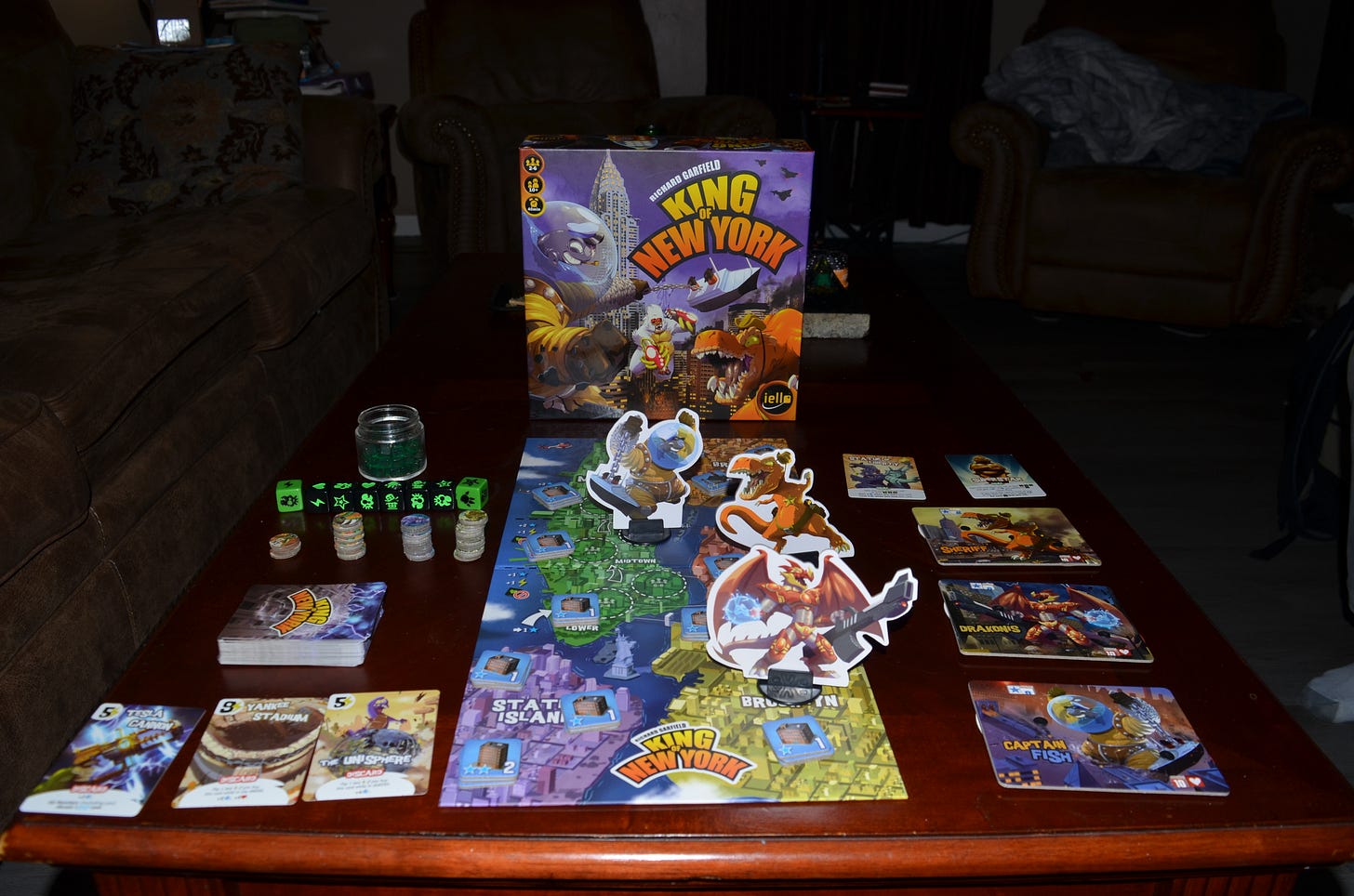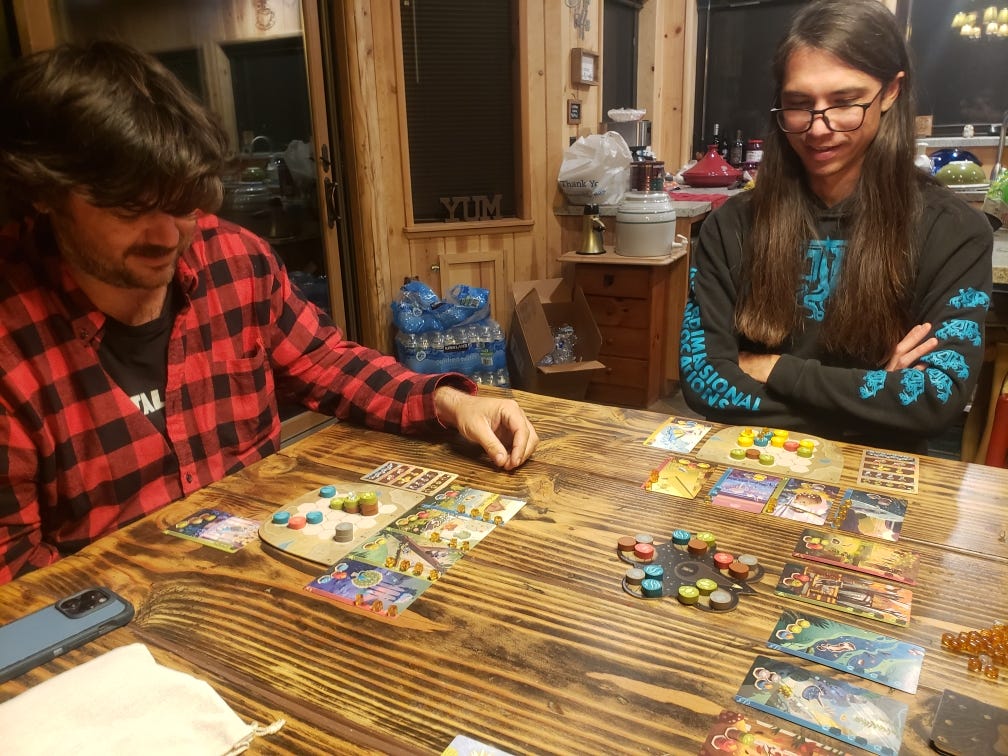Rehumanization
The Good Game Theory
We all have various roles we serve in the multitude of systems we are a part of - our families, work, to our social groups. If we don’t properly perform that role, the whole system could collapse. This can create a lot of pressure that leaves us feeling used & abused by the end of the day.
A game lets us see people as people again. They let us feel like humans again, even if we are playing as a dinosaur. When the game begins, we are equal for a moment. The power dynamics of a relationship are now balanced. Kids have a fair shot at beating their parents. In a corporate setting, when games are played between bosses & employees, the pressure of maintaining the job hierarchy is relieved. The roles we play can dominate our identity. When we play, the weight of that cross is put aside. As Bert needs to tell Ernie from time to time, we can “put down the ducky.”
Rehumanization through games works both ways, let’s call it reciprocity. You feel more like a person because your moves/actions count & you see those you play with in the same light. There is just something rehumanizing about mutual respect. Games that players don’t respect each other don’t go well & shouldn’t be expected to be played again. Ideally, if we continue to interact with those we play with, whether opponents or teammates, the respect that we learn & practice during the game will continue in our relationships.
The most important lesson that I learned from attending Dice Tower West, a board gamer’s paradise, was the way people reacted to those with disabilities. Nobody cared. I mean nobody paid any more or less attention to them then needed. I mean if someone in a motorized wheelchair was rolling by, you make sure they had enough space. Or if someone needed a hand to grab a game from a high shelf, you would lend a hand. That was about it. People with disabilities want to be seen as people 1st. When they play, if they are judged, hopefully it is in MLK’s dream terms, “by the content of their character.”
Society is built on shared experiences. Through games we write the history of our culture.



